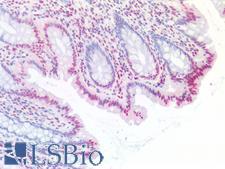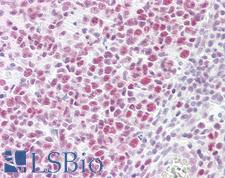Login
Registration enables users to use special features of this website, such as past
order histories, retained contact details for faster checkout, review submissions, and special promotions.
order histories, retained contact details for faster checkout, review submissions, and special promotions.
Forgot password?
Registration enables users to use special features of this website, such as past
order histories, retained contact details for faster checkout, review submissions, and special promotions.
order histories, retained contact details for faster checkout, review submissions, and special promotions.
Quick Order
Products
Antibodies
ELISA and Assay Kits
Research Areas
Infectious Disease
Resources
Purchasing
Reference Material
Contact Us
Location
Corporate Headquarters
Vector Laboratories, Inc.
6737 Mowry Ave
Newark, CA 94560
United States
Telephone Numbers
Customer Service: (800) 227-6666 / (650) 697-3600
Contact Us
Additional Contact Details
Login
Registration enables users to use special features of this website, such as past
order histories, retained contact details for faster checkout, review submissions, and special promotions.
order histories, retained contact details for faster checkout, review submissions, and special promotions.
Forgot password?
Registration enables users to use special features of this website, such as past
order histories, retained contact details for faster checkout, review submissions, and special promotions.
order histories, retained contact details for faster checkout, review submissions, and special promotions.
Quick Order
PathPlusTM EP300 / p300 Antibodies
EP300 is a histone acetyltransferase that regulates transcription via chromatin remodeling. It acetylates all four core histones in nucleosomes. EP300 mediates cAMP-gene regulation by binding specifically to phosphorylated CREB protein. It also plays a role as a coactivator of NEUROD1-dependent transcription of the secretin and p21 genes and controls terminal differentiation of cells in the intestinal epithelium. EP300 can also promote cardiac myocyte enlargement. In infectious disease, it binds to and may be involved in the transforming capacity of the adenovirus E1A protein, and in case of HIV-1 infection, it is recruited by the viral protein Tat. It regulates Tat's transactivating activity and may help inducing chromatin remodeling of proviral genes. In immunohistochemistry, EP300 has nuclear and cytoplasmic positivity in a majority of tissues throughout the body.
References: The UniProt Consortium. Nucleic Acids Res. 47: D506-515 (2019); Nucleic Acids Res. 2016 Jan 4;44(D1):D733-45, PMID:26553804;
2 PathPlusTM Antibodies


☰ Filters
Products
Antibodies
(2)
Type
Primary
(2)
Target
EP300 / p300
(2)
Reactivity
Human
(2)
Mouse
(1)
Rat
(1)
Mustelid
(1)
Primate
(1)
Application
IHC-P
(2)
WB
(2)
IF
(1)
IP
(1)
Peptide-ELISA
(1)
Host
rabbit
(1)
mouse
(1)
Product Group
PathPlus Cancer
(2)
Isotype
IgG
(1)
IgG1,k
(1)
Clonality
monoclonal mc
(1)
polyclonal pc
(1)
Clone
RW128
(1)
Format
Unconjugated
(2)
Epitope
aa1-50
(1)
aa1572-2371
(1)
Publications
No
(2)

Cancer
EP300 / p300 Mouse anti-Human Monoclonal (aa1572-2371) (RW128) Antibody
Mouse, Rat, Mustelid, Primate, Human
IF, IHC-P, IP, WB
Unconjugated
0.1 mg/$375

Cancer
EP300 / p300 Rabbit anti-Human Polyclonal (aa1-50) Antibody
Human
IHC-P, Peptide-ELISA, WB
Unconjugated
50 µl/$375
Viewing 1-2
of 2
product results










